#a jedi as an antagonist
Explore tagged Tumblr posts
Text
I’ve got two reactions to Cal Kestis basically executing Masana Tide (the ninth sister).

Reaction 1:
Wow what good way of showing Cal’s character growth and setting up his journey for the rest of the game. He is worn down, jaded, a bit rougher around the edges and trying not to lose himself. I love the storytelling!
Reaction 2:
Holy shit that’s hot
#he tried to spare so many antagonists in Jedi fallen order#now he does what he feels he has to#star wars#jedi survivor#jedi fallen order#cal kestis#masana tide#ninth sister
55 notes
·
View notes
Text
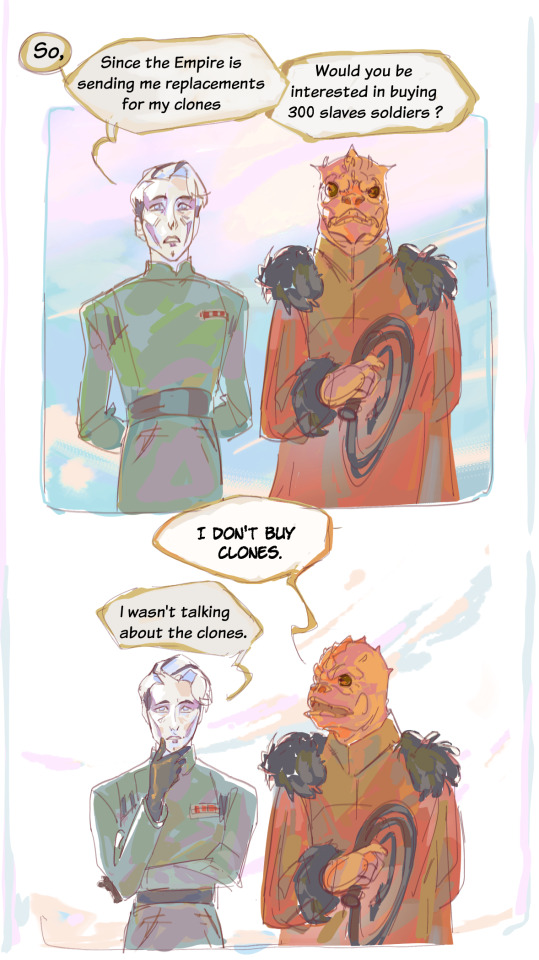
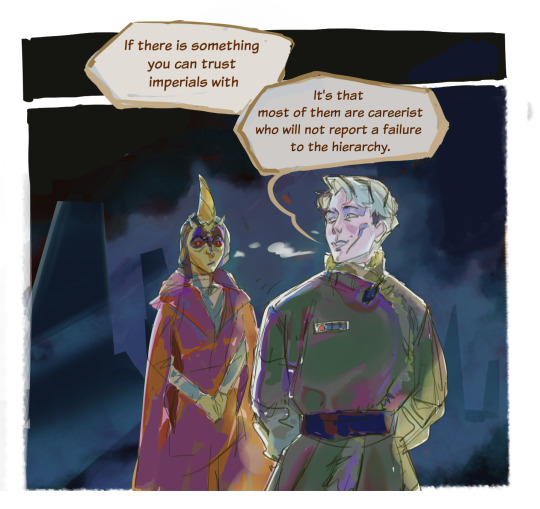
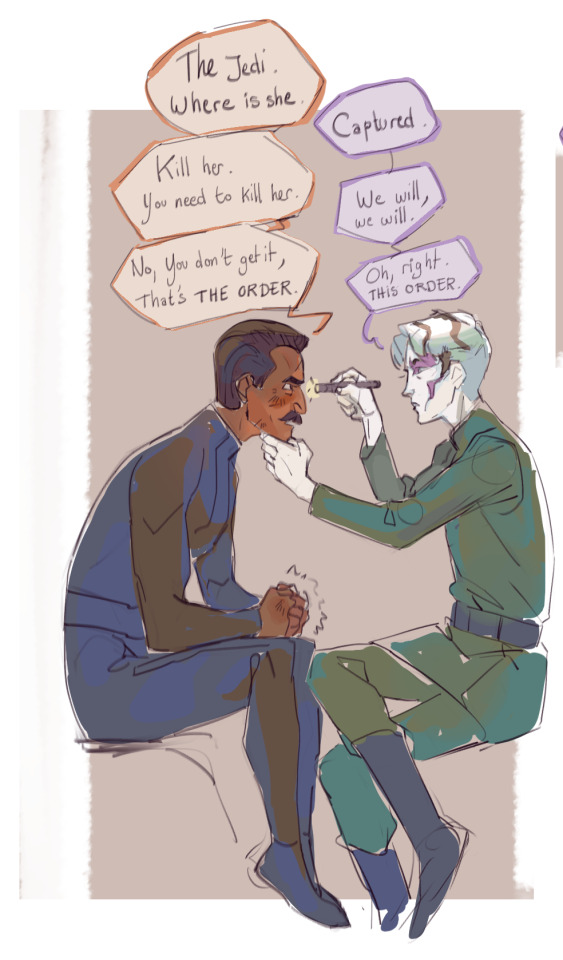
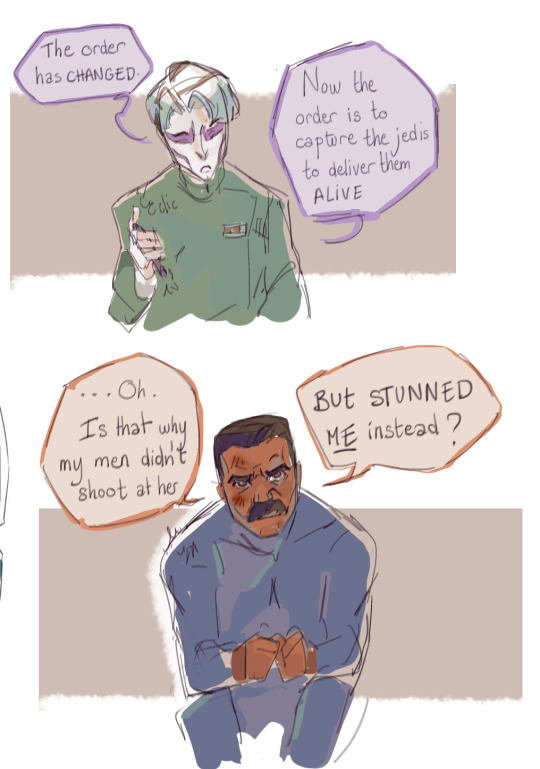
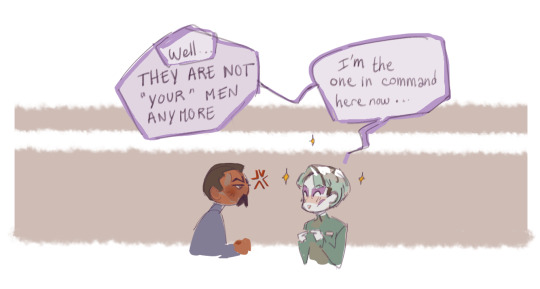
last Oc of the trio Pippali - Clone Poet : Magendi Riss. Umbarian medic upgraded Captain after Order 66. Like all Umbarian he got...dubious morals...
#star wars#star wars oc#star wars clone oc#he just thinks clones are more worthy than natborns/mongrels but like in the worst paternalist problematic way#damn I need a chronology for his character design#one day#Currently debating with myself if he ends up killed by Rex or executed after the fall of the Empire#who knows#he might also be part of the people who got to have a clue about the clone chip thingy and didn't tell cause he ofc didn't want troubles#etc#He's mostly here to give the other two an antagonist#ok bye#no wait#thanks for the love given to my jedi OC <3#ok now I go finish zine art#I'm lateeeee
33 notes
·
View notes
Text
Not to get too much into Star Wars discourse but here we go--
No, the Sith are not inherently evil. The Sith code can be interpreted in different ways and it is interpreted differently by different characters. Writers are allowed to experiment and put nuance to the sides of the Force.
No, the Jedi are not pure and virtuous beings who had no faults. The Jedi did a lot of shit, and got waaaay too comfortable in their positions in the government to even see Palpatine for what he really was. The entire point of the prequels is that they were blinded by their arrogance.
Anakin was not the good guy, and his fall is inherently tragic. But the Jedi did fail him because they refused to accommodate him in any meaningful way. (Also, they left his mom to continue to be a fucking slave.) The Jedi were not prepared for someone like him.
Obi-Wan did the best he could, and while he also has fault in Anakin's fall, it wasn't solely his fault. Speaking of which, Anakin's fall was also equally as much his fault as it was the Jedi's.
Is that it? Yeah, I think that's it.
EDIT: Pro-Jedi losers stop commenting or reblogging this shit. You will be blocked.
#pro sith#just to be clear#i do like the jedi#i wouldn't be writing them as flawed good guys in my fic if i didnt like them#but they are also antagonists regardless#i am not trying to slander the jedi as evil monsters#because they aren't#but there should be nuance when we talk about them#aso rambles#star wars
36 notes
·
View notes
Text
I am obsessed that Jedi: Survivor explores Cal more or less slipping into the dark side/dark behaviors and patterns and how leaning into emotion as a Jedi can make you significantly more powerful though also extremely reckless and aggressive - however a balance could perhaps be reached by Jedi with the patience and support to understand their darker emotions and how it could be beneficial or harmful given the situation. But they fr don’t. Every time something within that vein happens to Cal everyone is like damn… crazy. Anyway
#that being said I am… so sad they didn’t further flesh out Dagan and Santari#like that was a really big part of the genuine first 1/2 or even 3/4 of the game and then… like#I understand it was mostly symbolic and that Cal and Merton saw the foil of their own relationship (kind of) and that love is not a good#enough excuse to be a monster but also like… that parallel did not come in almost at all#the whole game Merrin was based as fuck and pretty emotionally centered#SIGNIFICANTLY more than cal - and - if it was to be a true parallel then wouldn’t Cal have genuinely scared her in some way?#didn’t it seem like maybe when he embraced darkness he should’ve gone TOO far and Merrin would’ve needed to actually fight him to bring him#back to both himself and her?? they… almost… got there on nova garrun or whatever but.?#Dagan and Santari like that was an interesting as fuck relationship and I really REALLY wish they’d come full circle in the end but. didn’t#I felt like there was a bit of allusion maybe Santari had found a way to preserve herself too but. dude. they were so interesting as doomed#narrative antagonists or like whatever. I genuinely thought maybe Bode’s betrayal would be revealed like Dagan bodyswapped him#and that accounted for his seemingly bizarre switch up like. idk. grasping. and I loved the game do not get me wrong#but like. a lot of potential in a foil always and that did not see it through to the sequel#jedi survivor#jedi fallen order#cal kestis#jedi suvivor spoilers#I know it came out last year but. obviously I have just played it now
22 notes
·
View notes
Text
underrated thing I love that I do not think about, use, or appreciate often enough: when a character is doing the objectively right thing, an objectively good thing....but so vindictively. like with just the bitchiest attitude. like they're for sure being kind and right but with the bitchiest, snarky attitude. I love that.
#i feel like is especially good in star wars#especially with jedi characters#so it's like there's no ~drama~ about the dark side or whatever they're objectively doing good#but just very bitchily#i love it#anyways post inspired by current wip#i finally worked out the convoluted plot and it's counter-plot#and realized that it totally fits that cere's whole counter-plot -- while objectively good and focused on that primarily--#is almost entirely based on systematically tearing apart a nasty comment the antagonist makes near the beginning#so she's just like yup saving everyone preventing great harm....while also being like (internally) '...bitch#'we'll see about that'#like I'm just picturing her coming up with this plan to save everyone while repeated that comment in her head in a mocking tone#it was kind of an accident she doesn't originally hear that comment#but as i was coming up with the most logical plan i realized what made the most sense and caused the fewest plot holes (hopefully)#was essentially directly countering everything in this nasty comment#so i moved it to a part of the sequence she was in the room for lol#and now she gets to plot while being like 'i HaVe AlL tHe PoWeR....get wrecked asshole'
7 notes
·
View notes
Text
my headcanon for swtor from knights onward is actually that all my pcs are in fact still alive simultaneously and they all have a little bit of valkorion in their head (like a horcrux) and they all work with the alliance depending on their class actually
#just that kadmus/cavalry have the most persistently antagonistic valkorion possession#on account of class story proximity to 1) being possessed by the emperor before 2) being a magnet for possession in general#also that my smuggler garnered a little residual force sensitivity out of the whole ordeal#their actual roles as the main character in kotfe/kotet depends on who i think works best for the mission#but for the most part kadmus and cavalry remain the stars as sith inquisitor and jedi knight respectively#kadmus also ultimately takes the throne#also have yet to play the warrior/trooper/bounty hunter class all the way through#and i toss out jedi consular as being a relevant entity#apologies to them their class story is just soo boring
2 notes
·
View notes
Text
book 2:
-I’ve never actually had a crab rangoon but this planet name is making me crave some
-“Obi-Wan had this maddening way of not taking a stance on things.” yeah buddy that's not going to get any better
-Anakin misses his mom so much :( these books are really dedicated to making him miserable. anyway it's interesting how he's feeling like neither Tatooine or the Jedi Temple is home (Obi-Wan admonishes him a bit for the second one)—right now he considers home "wherever mom [is]" which seems telling about how he views other relationships later
-anakin is very convinced that qui-gon and obi-wan's relationship was perfect, and is beating himself up about not being as close to obi-wan as he thinks he should be
-meanwhile, obi-wan is desperately trying to act more like qui-gon acted toward him, specifically "[holding] back what he thought anakin did not need to know" which apparently includes all affection. they're both so miserable
-i do wonder if the "orphaned siblings cause problems" plot influenced the skywalker twin custody plan
-dex lore!! he took over the cafe after the old owners moved, this was recent enough for anakin to know the old owners
got influenced to read jedi quest so here's what caught my attention in the first book:
-friendless anakin getting in fights to the death in junkyards at 2 am to avoid lying awake feeling guilty about abandoning his mother
-both obi-wan and anakin being very fixated on the idea that anakin is inadequately self-sacrificing (seems unfair given his recent-ish actions in tpm)
-little signs that there may not actually be a style guide on yoda syntax, which makes me feel better about my own attempts to write yoda syntax
-bail organa mention 🥳🥳🥳 for being the only competent member of the senate
-for how much he criticizes anakin’s “strong will,” obi-wan seems awfully comfortable making big decisions in an instant without consulting the rest of the group
-classic “you’ve poisoned her against me” line from the villain after his treachery destroys a lifelong bond
#also i'm too online to take an antagonist named “omega” seriously#someone just step up and get that guy pregnant so he's too busy with ultrasound appointments to hunt jedi for sport. duh#jedi quest
49 notes
·
View notes
Text
wip i guess?
"I dont think you understand the severity of what's going on here."
When the Cathar merely shrugged as he chewed on that stupid toothpick, Varrich had to resist the urge to reach out and smack it out of his mouth.
"I don't think you get that I know what I'm doin'. I was hired for a job, I'm doin' that job, yeah?"
For an underworld boss, this guy was so stupid Varrich wanted to pull out his hair just from talking to him.
"Sept. Darok gave us a task, you're making it difficult for the rest of us. Just--"
"Major." Master Vetiko's voice was gentle even as the end of her tail twitched with irritation with the situation. "You two at each others' throats is what's making this difficult, not Jen being a little lippy."
Varrich's lip twisted as his scowl deepened. Despite his helmet covering the upper half of his face, Vetiko still gave him a look - she could probably just sense his irritation without seeing the look in his eyes.
"Where's V'ehsz?" he asked, to change the subject. The Barsen'thor had snuck off in a Force shroud to disable the guns that were making getting anywhere close to the taxi pad nearly impossible. That left the rest of the team to take cover as they waited.
Vetiko hummed as she closed her eyes, then gestured toward the second nearest to their location. "First is down, he's currently at the second. I think we're good to start heading toward the third; he should have it disabled by the time we get there."
"Then let's hurry it up," he muttered as he readied his rifle; Vetiko tightened her grip on her lightsaber, while Jen hoisted up both of his somewhat-outdated-looking blasters.
He couldn't say he was pleased to be working with two Jedi and a smuggler while his usual team held back to aid the rest of the ranks in defending the landing position, but it is what is, he supposed. The colonel knew what he was doing, this plan had worked so far, they just had to get to the Jedi temple to drive the enemy forces out of it.
...He also couldn't say he was too pleased when Sept cast a look over his shoulder, a cheeky grin stretching his mouth. Why did he have to work with this guy...
#swtor#republic trooper#smuggler#jedi knight#tales from the void#voids ocs#oc: varrich tophrik#oc: jen sept#oc: leo vetiko#i love the relationship between jen and varrich#theyre So antagonistic of each other#this is rambly cause i wanted to write it down quick while we wait for a museum to open
1 note
·
View note
Text
SV Star Wars AU where Shen Yuan transmigrates into a proxy for Padme.
I know the Obikin vibes are really strong with Bingqiu, but hear me out:
Shen Qingqiu is the fourteen-year-old(?!?!) King Elect (?!?!?!) of Qing Jing, a planet from the Cang Qiong sector that has been facing issues with the Trade Federation and has petitioned the Jedi Order for help.
"Shen Qingqiu" is also a role played by several similar-looking fourteen-year-old boys, except where Padme and her handmaids were all from more or less the same background, most of the servants conscripted for the Shen Qingqiu role are downtrodden slaves basically cast as expendable bodyguards, whose main advantage in this deal is that after Shen Qingqiu finishes his term as King then they get to go free.
Meaning, Shen Yuan and Shen Jiu are both expendable body doubles for the "real" Shen Qingqiu (in this case, Qiu Jianluo going by his royal name, with the "qiu" being deliberate rather than accidental).
Additional fun possibility: Qiu Jianluo has actually been dead since the trouble with the Trade Federation first escalated, and Shen Yuan and Shen Jiu have basically been Weekend At Bernie's-ing him because there's no time to elect a new king and if the Trade Federation's blockade isn't broken, everyone's immediate prospects are extremely bleak (and the odds of the Shens being sent to some prison camp instead of granted their freedom is very high).
Another additional fun possibility: the Trade Federation didn't actually kill Qiu Jianluo, Shen Jiu did, so not only do they have to maintain the charade, they also have to look for opportunities to drop Qiu Jianluo's corpse down a reactor core or something and make it look like he's died during the conflict in order to prevent any investigations that will look into pesky things like "time of death" or "how many stab wounds there are".
In the midst of all this, of course, there is the main plot of PIDW/SW, wherein Shen Qingqiu was originally one of several antagonists to excessively bully and dismay Jedi prodigy and future Chosen One Luo Binghe, a poor slave boy living on an ice planet and trying to win enough money via dangerous pod races to buy medicine for his dying mother. Featuring also young Jedi knights Liu Qingge and Yue Qi (the latter of whom seems to have some history with Shen Jiu...?), admittedly kickass Sith apprentice Mobei Jun, a certain future Chancellor from the Huan Hua sector, and sentient Sith holocron Meng Mo. And Airplane, probably as an up-and-coming member of the Jedi AgriCorps who basically has Count Dooku's plot duties (turn traitor and get killed) but is somehow also thoroughly entangled with Mobei Jun.
617 notes
·
View notes
Text
Debunking more myths in the GFFA: the Jedi and the clones.
I wrote a post debunking the various myths about how "the Jedi condone slavery", a while ago. Something I had omitted (because it's such a big topic) was the following two statements that concern the clone troopers' relations with the Jedi:
"The clones were genetically bred to have accelerated growth, so they're technically child soldiers."
"The clones were slaves of the Jedi."
Both the above statements are inaccurate, let's explore why.

"The clones were child soldiers"
Let's get the easy one out of the way first, because it's a logic that cuts both ways. If age is our only determination of the maturity of a Star Wars character, then Grogu is not a baby. He is aged 50, and is thus a middle-aged man.
Who cruelly eats the babies of a woman...

... and knowingly tortures animals for his own sadistic pleasure.

Of course, I'm kidding. Grogu's none of the above things.
The narrative frames him as a cute baby who does innocent baby stuff. Him eating the eggs is played off as comedic, as is him lifting with the frog. To this day, some fans still call him "Baby Yoda".
Conversely, despite the clones being 10/14-years-old, their actions, behaviors, way of thinking, sense of humor, morals etc, are all those of an adult.
Like, Ahsoka is technically older than Rex in this scene.

The scene doesn't portray them as peers, though. This isn't written as "a teen and a tween talking". No, Rex looks, acts and behaves like a grown-up and is thus framed as such by the narrative.
You can make the argument "they're child soldiers", but (unless you're doing so in bad faith) you'd also have to argue that "Grogu's an adult".

"The clones were the Jedi's slaves"
Nope. For all intents and purposes, they're in the same boat as the Jedi, who George Lucas stated multiple times had been drafted to fight in the war.
Again: both the Jedi (monk/diplomats untrained for fighting on a battlefield) and clones (literally bred en masse only to fight) are being forced to fight by Palpatine and the Senate.

Though, on paper, the clones were commissioned by Jedi Master Sifo-Dyas, it was actually done by the Sith (who either manipulated or assassinated Sifo-Dyas then stole his identity, depending on the continuity you choose to adhere to). The rest of the Jedi had no idea these clones were being created.
So while the clones are slaves... they're not owned by the Jedi.
They're the army of the Republic, they belong to the Senate. This isn't exactly a scoop, they refer to the clones as something to purchase...
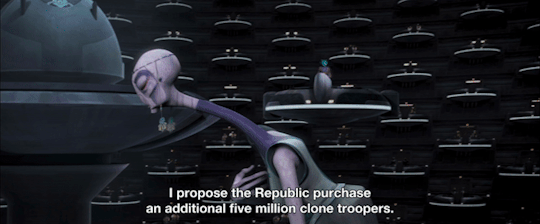
... and manufacture.

As far as the Senate’s concerned, clones are property, like droids.
Like there's a whole subplot in The Bad Batch about this very point: after the war, the clones are decommissioned and left out to dry because they literally have no rights, they served their purpose.
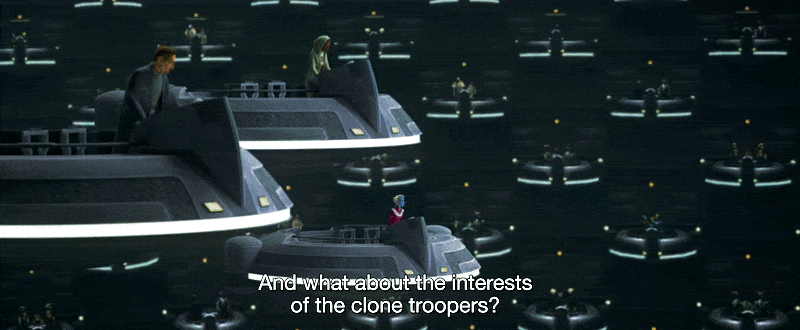
The only trooper to ever canonically blame the Jedi for the clones' enslavement is Slick, who the narrative frames as having been bribed and manipulated by Asajj Ventress into betraying his comrades.
Also, the only canonical Jedi shown to ever be mean, dismissive or mistreating the clones in any way, is Pong Krell.

And it's eventually revealed he’s in fact a full-on traitor, hence why the story frames him as an antagonistic dick from the moment he's introduced. He doesn’t represent the Jedi in any way.
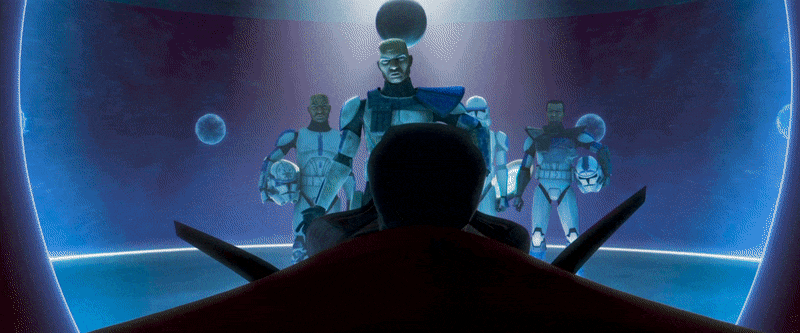
We know this because the other Jedi we’ve been shown are always prioritizing their clones’ lives over theirs, if given the chance.

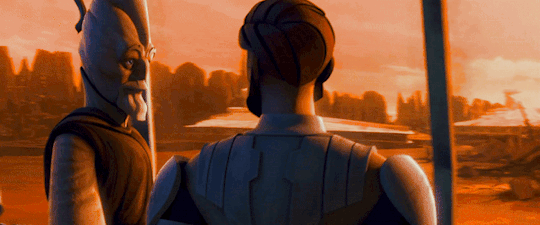
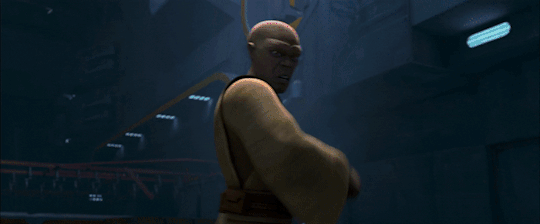
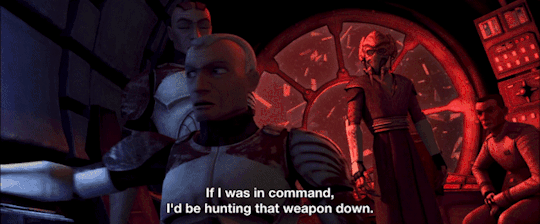
Finally, if we wanna get even more specific... as Commander-in-Chief of the Grand Army of the Republic (GAR), the clones belong to Palpatine.
Palpatine who is a Sith Lord.
Palpatine who arranged for the creation of the clones and had them all injected with a chip that would activate upon hearing a code-word...
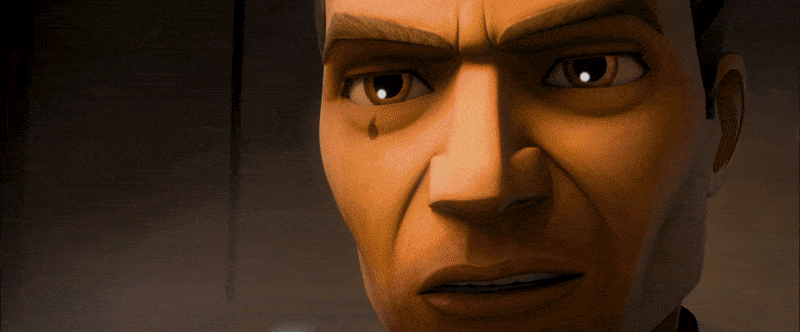
... and forced them to murder their Jedi without hesitation or remorse.
When you bear all that ⬆️ in mind and when you read this quote by George Lucas...
"The Jedi won't lead droids. Their whole basis is connecting with the life force. They'd just say, 'That's not the way we operate. We don't function with non-life-forms.” So if there is to be a Republic army, it would have to be an army of humans." - The Star Wars Archives: 1999-2005, 2020
... narratively-speaking, everything falls into place.
Sidious knows that:
If he orchestrates a war designed to thin the Jedi's numbers, corrupt their values and plunge the galaxy into chaos...
If he wants to draft the Jedi - peace-keeping diplomats who’d never willingly join the fray - to fight in his war...
... then the only way they won't resist the draft and abstain from fighting is if they think joining the conflict will save lives.
So he creates a set of cruel, sadistic villains for them to face, opponents who will target innocent civilians at every turn...
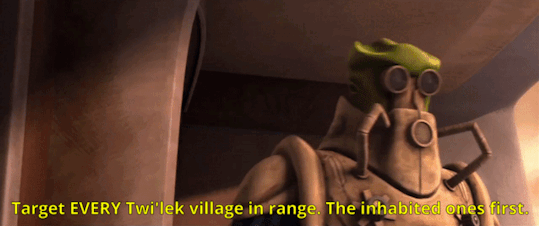
... and instead of lifeless droids, he prepares for the Jedi an army of men... living, mortal people who, despite being well-trained, will be completely out of their league when facing the likes of Dooku...

... Ventress...
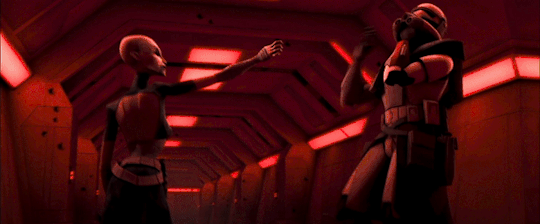
... Grievous...
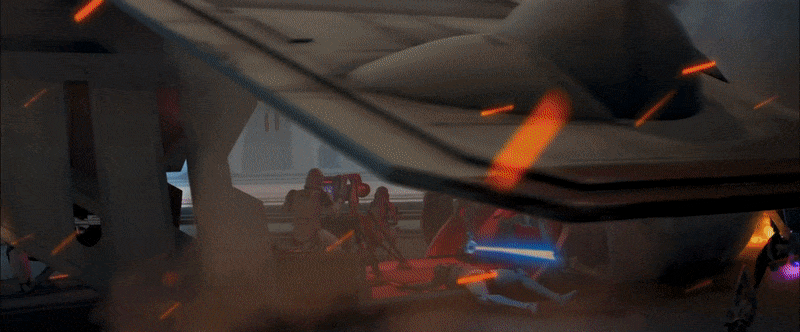
... Savage Opress...
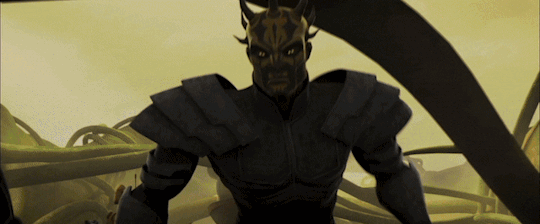
... or the defoliator, a tank that annihilates organic matter.
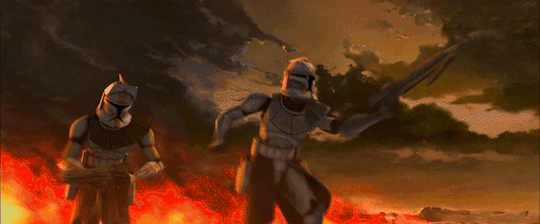
Thus, in order to save as many clone and civilian lives, the Jedi join the fray despite knowing that doing so will corrupt their values.
And as the war rages on, a bond of respect is formed between the two groups.
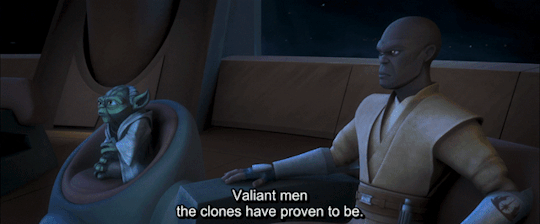
Clearly, the Jedi don't like the fact that the Republic is using the clones to fight a war, but for that matter, they don't like being in a war, in fact they advocated against it.

However, it's happening regardless of their issues with the idea or personal philosophies. Said The Clone Wars writer Henry Gilroy:
"I’d rather not get into the Jedi’s philosophical issues about an army of living beings created to fight, but the Jedi are in a tough spot themselves, being peacekeepers turned warriors trying to save the Republic."
And bear in mind, the Jedi are basically space psychics, the clones are living beings that they can individually feel in the Force...
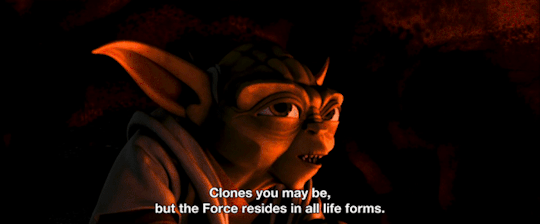
... so the Jedi feel every death but need to move on, regardless, only being able to mourn the troopers at the end of every battle.
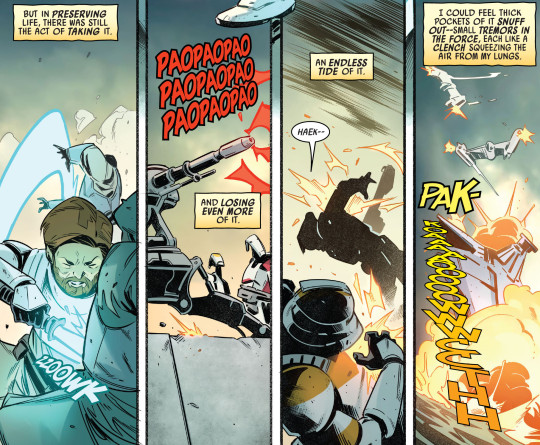
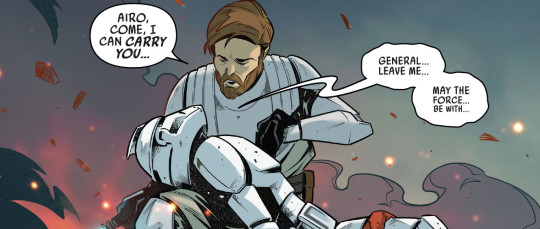
We see this in the Legends continuity too, by the way.
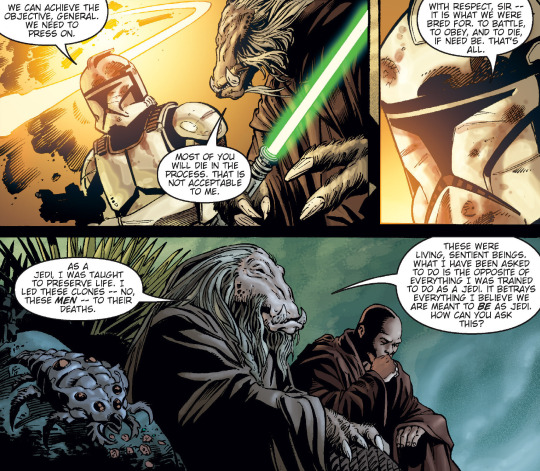
(that is, when the writers actually try to engage with the narrative)
Also, if you ask the clones, they’re grateful the Jedi have their backs.
When Depa Billaba voices her concerns about how the war is impacting the Jedi's principles, troopers Grey and Styles are quick to make it clear how grateful they all are for the Jedi's involvement:
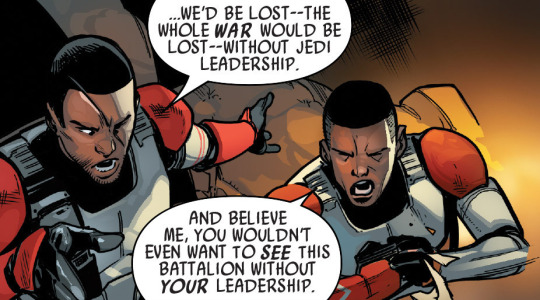
So the clones aren't the Jedi's slaves. If anything, they're both slaves of the Republic (considering how low the Jedi's status actually is in the hierarchy).
Only I'd argue the clones have it much, much worse.
The Senate sees the Jedi as "ugh, the holier-than-thou space-monk lapdogs who work for us"... but a Jedi has the option to give up that responsibility. They can leave the Order, no fuss or stigma.
A clone trooper cannot leave the GAR! If they do, they’re marked for treason and execution. Again, they’re not perceived as “people”.
And it doesn’t help that the Kaminoans, the clones’ very creators, see the troopers as products/units/merchandise. A notion that the Jedi are quick to correct whenever they get the chance.


How The Clone Wars writers describe the clones' relationship with the Jedi.
George Lucas hasn’t spoken much about this subject aside from the quote from further up. But to be fair... the Prequels aren’t about the clones’ dynamic with the Jedi, so it makes sense that he wouldn’t talk on that subject so much.
He did mention that part of The Clone Wars’ perks is that he could:
“Do stories about some of the individual clones and get to know them.”
But that’s as far as it gets.
So for this part, I'm just gonna let Dave Filoni, showrunner of The Clone Wars and the upcoming series Ahsoka, and TCW writer Henry Gilroy - both of whom worked closely with Lucas - take the wheel. They make themselves pretty clear on how the clone/Jedi dynamic is meant to be viewed.
Here’s Henry Gilroy:
"In my mind, the Jedi see the clones as individuals, living beings that have the same right to life as any other being, but understand that they have a job to do."

"The clones see the Jedi as their commanding officers on one hand, but also, at least subconsciously, they look to them for clues to social/moral behavior."
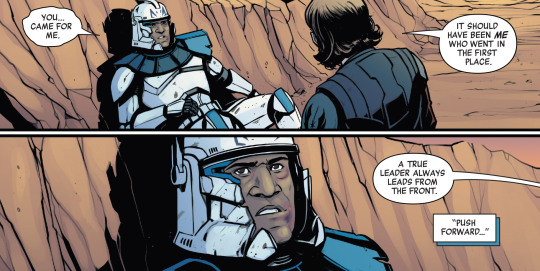
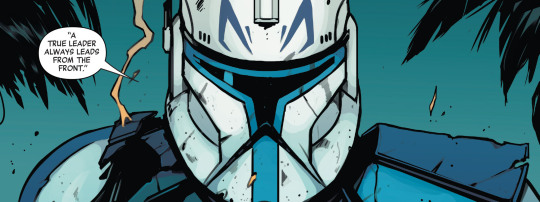
"Some clones may find themselves getting philosophical leadership from the Jedi that helps them answer some of the deeper questions of life."
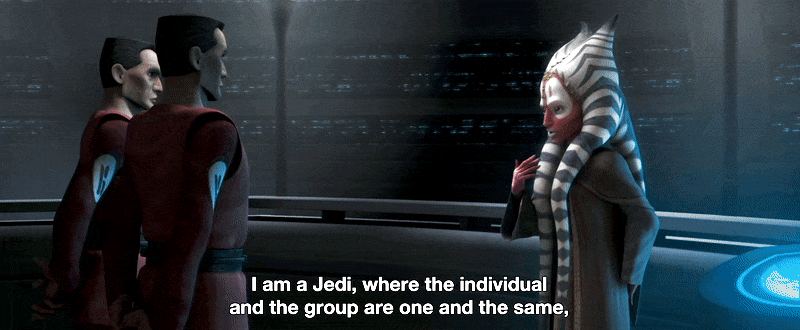
"We thought this was a great opportunity to show how the Jedi interact with clones. Specifically, Yoda in a teaching role of the clones, who were socially new, who kind of grew up— who were created to fight, and he really broadened their horizons and helped them realize there was a great big universe out there that was bigger than just fighting and killing."

And here’s Dave Filoni’s comments:
"I truly believe that the Jedi try to humanize their clones and make them more individual, as Henry says."
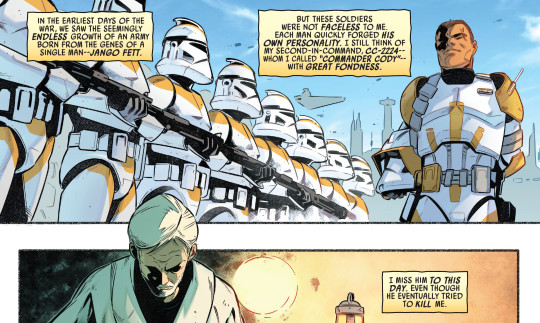
"I think we saw that in Revenge of the Sith, when the Clones were colorful and named under the Jedi Generals, and then in the final shots of the film with Palpatine and Vader near the new Death Star, the ships are grey, the color and life is sucked out. The Stormtroopers are only numbers and identified by black and white armor or uniforms in A New Hope."
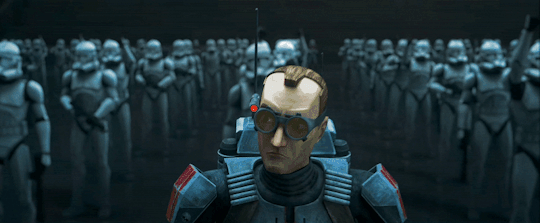
"The soldiers have become disposable to the Emperor."
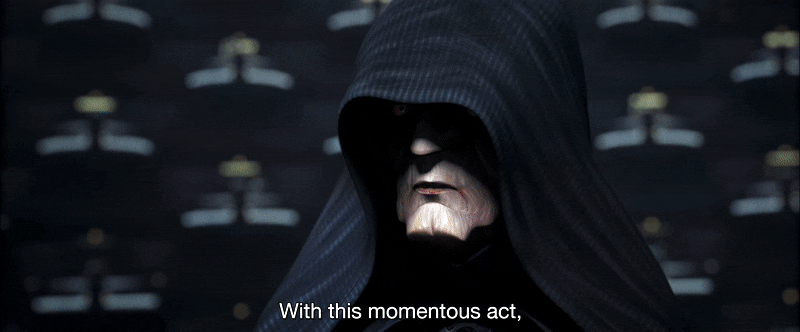
"That is something the Jedi would never do."
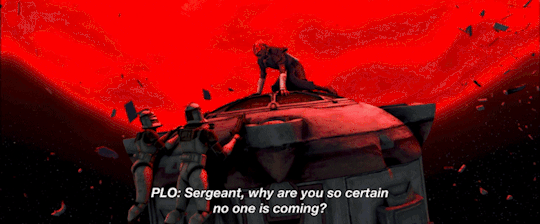
"Yoda teaching the clones much like he taught Luke. ‘Cause that was kind of natural for [the Jedi], a natural instinct to take to these clones like they’re students."
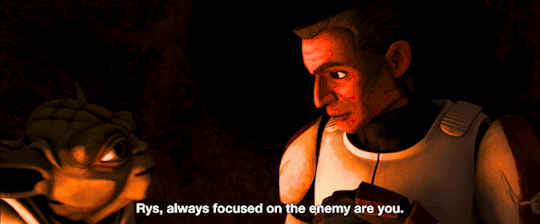
None of the above quotes from two different writers of The Clone Wars, who had many interactions with George Lucas, frame the Jedi and the clones’ relationship in a negative way.
How much more proof do we need that "the clones were slaves of the Jedi” isn’t the intended narrative?

My point being that while the clones' ordeal is indeed horrible, the Jedi have nothing to do with it. The narrative of The Clone Wars always frames it as the fault of the Sith, the Senate and the Kaminoans.
If you go by the intended narrative, the Jedi were the clones' teachers and brothers-in-arms. The clones and the Jedi were not just comrades.

They were friends.
#long post#But most of this is GIFs used for evidence#meta#SW meta#jedi#Jedi Order#in defense of the jedi#Clones#The Clone Wars#on the jedi's involvement in the clone wars#TCW#Clone Troopers#Rex#Cody#Plo Koon#Mace Windu#Obi-Wan#Yoda#Dave Filoni#Henry Gilroy#Grogu#George Lucas#flashing gif
2K notes
·
View notes
Note
Do you have any advice for writing Mace Windu?
Hello friend! I've been sitting on this for a while, because everyone's got their own interpretations, but mine is based on an idea I was struggling to put words to.
(Caveat that I have not read Legends material, that people can write what they like, etc. etc.)
The way I see it, Lucas specializes in writing stories in terms of themes and archetypes. This is why certain dialogue choices or the development of certain relationships can be... clunky, let's go with that. Characters (Obi-Wan and Anakin fall into their own category, sure) are written primarily as archetypes. You have Yoda as the wise old sage, Sidious as the ultimate evil-
And Mace Windu as the ultimate good.
We see this in the Chancellor's office, right? During the final showdown. This is the moment where Anakin makes his choice- stay in the Light or Fall- and the characters visually representing that choice are Palpatine and Mace. He's the Master of the Order. He's raised a Padawan who sits on the Council with him. He's an incredibly skilled swordsman- hell, his fighting style of choice (Vaapad) epitomizes how clearly he's mastered the art of internal balance!
All of that to say- his whole character is built around the idea that he is the Good Guy. That would be the one piece of writing advice I would give. If you're wondering how to write him, start with that idea- that he is written to represent the absolute opposite of Sidious. He's the ultimate good. He is the illuminating Light to Sidious' corrupting Dark. This is why antagonistic portrayals of him never ring true to me- they're coming from a foundational understanding that I simply do not subscribe to. It reeks of a fundamental misunderstanding of his character and of the whole saga's themes.
(And also racism. I'd be remiss if I didn't mention the racism that too often plays a significant role.)
All of that being said, what might it look like to write from the foundation of Mace being the representation of ultimate good? The good thing about characters being written as archetypes is that it gives us fans a significant amount of freedom in determining what those characters look like when they're written as characters. Different people will have different takes, but for me:
Well, first off- he's the epitome of a Jedi. So all of what that entails- he is fundamentally kind, fundamentally compassionate, and fundamentally in control of himself.
He's funny. I think he has a very dry sense of humor, and that he finds joy in the smallest things.
He loves so much. He loves his Padawan, he loves his friends, he loves his family, he loves the Republic- he loves the galaxy enough to go to war for it, and he loves the men who'll kill his people.
There will never be a situation where he has the capacity to help and chooses not to.
And last but not least, I choose to believe that this man can bake pastries with the best of them. In my heart of hearts, he's a stress baker, and he mends his socks with purple thread.
Hope this helps!
#pro mace windu#mace windu my beloved#i love him i love him so much#thank you for giving me a chance to ramble on about exactly how much!!#pro jedi#pro jedi order#mace windu only made one wrong decision in his life and that was trusting anakin#and even then he was only wrong because anakin let him down!#anakin was not worthy of the trust mace placed in him!!#and that's not mace's failing#it's anakin's
334 notes
·
View notes
Text
I think there’s something rather strange going on with all the folks who insist that the Jedi Order in the PT was right and didn’t forbid love and Anakin should just have followed their teachings when the whole point of the prequels is that they are prequels. They come before the OT, and the OT proves the Jedi wrong. They literally do not make sense if they don’t do that.
Luke, in the original trilogy, gains his ultimate triumph, his ultimate victory, because he loved in defiance of the teachings of the old Order. He quite literally had the ghosts of the past telling him, explicitly and without ambiguity, that he has to put his love for his father aside and kill him, as is the duty of a Jedi. Luke has the weight of millennia of teachings weighing down on his shoulders, telling him they knew and know better than a young, inexperienced man barely out of his teenager years. That he should follow their teachings or be destroyed. That is an immense weight to carry, and many people would and explicitly have given in to it in-universe. What are your feelings and ideals in the face of such immense legacy, after all?
But Luke doesn’t give in.
He doesn’t bend.
He says “I may be young, and I may be new, but I believe to my heart and soul that love matters more than this legacy. Matters more than your teachings.” And he says this to the ghosts of his mentors. That is such a powerful moment and one I can’t believe George Lucas didn’t create deliberately for even a second. This young man, being told he has to kill or die trying for a system that is dead or dying itself, that couldn’t survive itself, and refusing to do so. He is the living refusing to continue the violence of a dead generation. He is the young man refusing the draft into a war the old generation started, saying “peace and love matters more than you being right.” He is the embodiment of breaking the cycle.
And the movies vindicate him.
The main villain vindicates him with his last dying breath.
Darth Vader, dying, says “You were right.” and admits he and his were wrong. The main antagonist, Luke’s nemesis, in the face of his son’s immense, defiant love, gives way and does the impossible: he comes back to the light and dies a Jedi. The very thing the old Order says was impossible.
They were wrong. They have to be. The narrative demands it, the movies don’t make sense without it.
The solution was never to continue the cycle of the old Order, or Luke would have failed there, would have failed when he said “I am a Jedi, like my father before me.” And claimed that defiant, deviant, condemned definition of being a Jedi over the one presented to him by the Grandmaster of the old Order. If the old Order was right, Luke would have to be wrong. Be wrong about love, be wrong about laying down the sword, be wrong about refusing to fight. He would have to be wrong.
But the old Order is dead, explicitly killed by a monster, in some part, of their own making. It’s members only existing as bones in the ground or ghosts speaking from beyond the grave. They did not deserve it, it should not have been inflicted on them, but the narrative is clear on this: “The old way is dead, and was dying for a long time before that. Long live the new.”
Luke is that new. Luke is the breaking of the cycle, the reforging of swords into ploughs, the extended hand. Luke says “I don’t care how much I was hurt, I refuse to hurt you back, and you don’t need to hurt me either.”
“We can end this together and choose love instead.”
And Darth Vader, killer of the Jedi, End of the Order, lays down his arms as well, and reaches back as Anakin, saying “You were right.”
It wasn’t Obi-Wan, Yoda, Mace, Qui-Gon, or even Ahsoka who achieved the ultimate victory in the end, following the tenants of the old Order. It was Luke. Young, inexperienced Luke, who saw that the age of legacy handed to him was only history, that the sword handed to him as his life was only a tool, and that the decrees of the dead were only advice. And he took it all, said “thank you for your experience, but I’ve got it from here,” and laid it all down to instead extend an open hand towards his enemy.
And his victory, his ultimate triumph, his vindication, was that he was proven right when his enemy reached back and became just another person. Just another person, just like him.
The Jedi did not deserve what happened to them, and they did not deserve to die. But the story is clear on this: the Jedi of old were wrong, and the Jedi of new, the Last Jedi, was right. No sword or death will ever end the rule of the sword or end the bloodshed. But love?
Love can ignite the stars.
1K notes
·
View notes
Text
Part 14 Fox, after hearing a knock on his office door: I'm busy. Thire, opening the door: Not too busy for me. Fox, sighing: What is it? Thire: Why are you picking a fight with Skywalker? You haven't been this stubborn about a Jedi since Gree wanted you to talk to his Jedi. Fox: It's too easy... Thire: What? What do you mean? Fox: It's too easy! I killed the chancellor, Thire! You killed senators! Why are these people allying with us so easily!? Thire: Because we finally opened up to them... Fox: It was pretty kriffing obvious what was happening to us before we opened up to them! They knew! On some level, I just know they knew! Thire: They didn't know, Fox! If our own vode didn't know, why do you believe the natborns who saw us even less knew about our situation!? Fox: I just...don't trust them...I can feel it...Something bad is going to happen, and I know it's going to be because of one of these natborns we decided to trust...It's going to be my fault...I'm going to let the enemy in... Thire: You have to stop blaming yourself, Fox'ika...None of this is your fault. None of what happened to our vode is your fault...No one blames you... Fox: I do...Please...Just let me be cautious... Thire: Caution is fine, but you can't be antagonistic to potential allies... Fox, sighing: Fine. Fine... Thire, laying a hand on Fox's shoulder: You should rest... Fox: I can't...I'm working on something. Thire: What is it? Fox: A speech...
54 notes
·
View notes
Text
grrahhhh attachment doesn't mean what disney star wars says it means and at this point i feel like i'm going fully insane about it. you can make the jedi the narrative antagonists for your edgy dark-side acolyte story without mischaracterizing the entire order and their philosophy. it's possible for the jedi to be the narrative antagonists and not be villainous or cruel or stupidly wrong and inhumanly demanding about how emotions work. the jedi can just be working at cross purposes to the hero while still advocating a normal amount of mindfulness and compassionate love. i'm losing my mind. can the producers and writers like. talk to a buddhist maybe even once before getting the privilege to write the jedi order. please. god.
146 notes
·
View notes
Text
I think that a core frustration that I have with the Jedi Discourse is the fact that a lot of us criticizing the Jedi are doing so on a meta-textual level, and we are being met with pushback that is totally reliant on authorial intent.
Yes, I understand that the Jedi were written to be aspirational and good and that the Sith are card-carrying villains, and I think that’s a given. My issues with the Jedi stem from where the writing produces something that has tension with this “these are the good guys” authorial intent. I have a hard time, for example, seeing the Jedi as perfectly heroic when the story gives them a slave army and acts like the writers were being held at gunpoint and instructed not to explore the really concerning implications of that.
I understand what a protagonist is and I grasp the concept of antagonist, and I understand who is who in the context of Star Wars. I just don’t feel like the Jedi as written by Lucas and co always live up to my personal standards of goodness and heroism. The intention is there, but the execution falls flat.
72 notes
·
View notes
Text
Can we take a moment to appreciate how well written and complex of a character Mae is? For the first 4 episodes, she just seems like a regular Sith/Dark Sider who hates the Jedi and wants to kill them, with hints that the Jedi may have wronged her in the past. However, in episodes 5 and 7, it becomes clear that her loyalty and motivations revolve around her family. When she thought her entire family had died, she set off to avenge their deaths, but when she saw that Osha was alive, she immediately abandoned that quest and betrays her master to try to reunite with her sister who she tried to shoot her on sight. But then, she gets trapped in the forest with Qimir and all she wants is to escape with Osha. However, when she realizes that the Jedi have outright lied to Osha about their family's death, she swaps places with her in an extremely desperate and risky attempt to get Qimir to un-brainwash her and tell her the truth so they have a chance at reconcilliation. Then, when they meet back on Brendok, Mae tries to tell Osha what happened, but when she sees that Osha is still brainwashed, she sets an elaborate trap to get Sol to confess to his crimes so that Osha will finally believe her. And when she does, she snaps and kills Sol and Mae is right by her side to help her accept what happens and to comfort her when she feels guilty about killing Sol. Then, when they realize that they can't escape together, Mae sacrifices her memories of everything, including her sister, the person who she loves the most and around whom her life revolves, in order to spare her from the Jedi. And if that isn't amazingly deep and complex characterization for a secondary antagonist, let alone a Star Wars character, I don't know what is.
#the acolyte#star wars the acolyte#star wars#mae aniseya#osha aniseya#master sol#the jedi#characterization#I love Mae with all my heart and soul#Murder is perfectly acceptable if it's to avenge a sibling's death#more sibling duos in star wars please#please give mae and osha a happy ending#the acolyte spoilers
94 notes
·
View notes